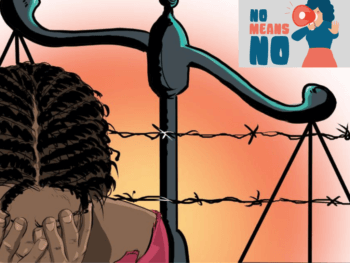Being a soundboard can be a good thing. However, when your friend is in the middle of a serious venting session it really is important to be mindful of what you will say in response. Here are some tips on what not to say to people who are venting and some suggestions on how to respond.
What Pisses Me Off: What Not To Say To Those Who Are Venting
Have you ever felt so much frustration bubbling inside of you that you just needed to express yourself through a good rant, swear session and/or maybe even a cry to someone who would listen?
You’re not alone. The desire to vent your frustrations to someone can be a healthy way to express your troubles. When you vent to someone, the expression can support clearing your mind and regulating your emotions. Sometimes though, the people you vent to start to listen less and talk more; they begin to offer unsolicited advice or make comments that make you feel worse, has this ever happened to you?
You’re not alone here either. Unfortunately, sometimes, despite good intentions, your confidante can make you feel even worse while you vent. In their desire to help you, they may try bringing forth solutions when all you needed was to just release your thoughts to someone who would just listen.
When this happens during venting, it can sometimes lead to miscommunication, feelings of helpless, isolation and/or an increased level of stress after the talk.
So … if there’s a chance venting can led to increased frustration, is it even worth doing?
YES!
Unfortunately, life is not always as easy and enjoyable as a walk in the park. Fortunately, you don’t have to make the trek alone – you can turn to family, friends, peer support groups and/or therapists for help with navigating our rocky steps and larger roadblocks. There’s a power (and science) behind the healing benefits of human connection. Venting is a way to express yourself, be there for others and stay connected. With effort and light education, you can make some small changes to help ensure vents are helpful not harmful.
So how can you help someone when they are venting?

Avoid the “it’s no big deal” and/or “just don’t give it any energy or thought” “brush it off,” responses:
Sometimes you might feel someone venting is overacting. You may think responding this way will help the person see they are getting heated up unnecessarily however, this can come across dismissive. Remember it’s not easy for everyone to turn to other people – sometimes it takes courage to reach out to a confidant for a vent. If the “venter” feels dismissed, they may be less likely to reach out in the future and internalize their problems and/or feel isolated.
Try one of these statements instead:
“I appreciate we are having this conversation. Sharing isn’t easy, thank you for trusting me enough to tell me.”
“I’m sorry you’re experiencing this. I’m grateful you’re giving me the opportunity to be here for you.”
“That’s a difficult experience. I’m here to listen. I want to ensure you know you’re not alone.”
Ditch the “you can/you should, try this” responses:
Don’t talk. It’s human nature (for some of us) to want to help find solutions but remember sometimes just listening is the most helpful thing. Recognize that the person venting to you is fully capable of finding solutions, they may not need anything from you other then some present-moment comfort. Remember that if someone venting is already feeling overwhelmed, adding to what they can/should do can make them feel even worse.
Sometimes however, someone venting may be looking for advice and/or you might know of something that can help them. I’m not suggesting not helping find solutions if they need, but I am suggesting you don’t assume to know what they need.
Try one of these statements instead:
“I’m grateful you’re sharing your thoughts and feelings with me. Would you like me to share my thoughts back? Could advice be helpful or is it more helpful for me to just listen right now? I’m comfortable doing what is best and most comforting for you.”
“You’re not alone, I’m here to listen to you. If it would be helpful for us to work on a potential solution together, let me know and we can try but we don’t have to, let’s do whatever you need and want to do.”

Let go of the “at least,” “it could be worse,” based responses:
Gratitude is a powerful perspective; research supports it as a self-regulating, soothing and stress management practice. However, just because someone is frustrated, it doesn’t mean they are not grateful or aware that things could be worse. A part of the human experience is to go through a range of emotions and when someone is frustrated, avoid trying to “cheer them up” by reminding them things that are going well for them (don’t assume they have forgotten). You may be trying to help but pointing out all their blessings can make them feel shame and/or guilt for their hardships or hurt emotions (and coming to you to share them).
Try one of these statements instead:
“That’s a difficult experience. I’m here to listen. I’m proud of you for recognizing how you’re feeling.”
“Thank you for sharing with me. I wish I could protect you from this experience, it sucks, and your feelings/thoughts/emotions are valid.”
“That is frustrating. You have the right to feel how you’re feeling. I appreciate you confiding in me.”
Finally…
Life may be feeling extra heavy for a lot of people these days. We can all do our part to help lighten the load for each other by creating safe, compassionate spaces for venting. Remember, every one of us needs a swear session sometimes without shame, guilt or stigma!
Rachna Sethi
Author
Rachna (@thesassyspiritual) is a graduate of the Applied Mindfulness Meditation program from the University of Toronto, a certified Educator with two bachelor degrees and a diploma in Art Therapy. She's dedicated to living with a compassionate approach. Committed to helping people integrate Mindfuln...














































































































